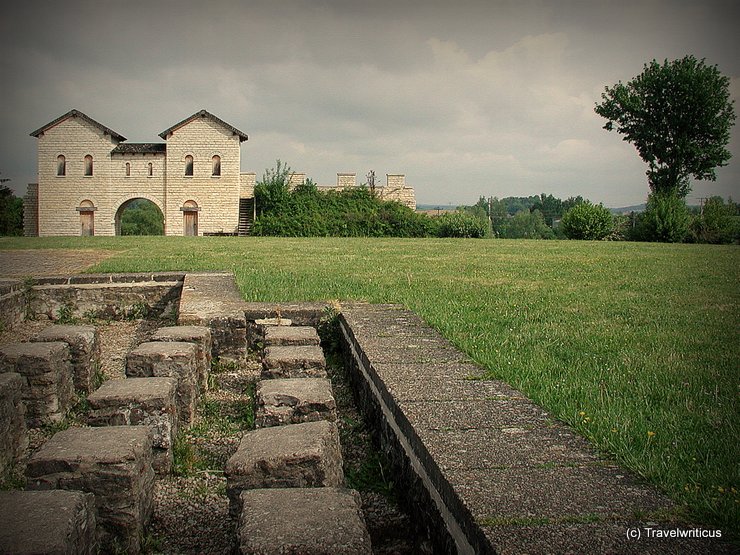
The Roman fort Biriciana, nowadays known as Kastell Weissenburg, was occupied by cavalry units during ancient times. The photo shows the reconstructed north gate (Porta decumana) of the fort area. In Roman times, this gate led to the Limes. [German]
You only see what you know (Goethe)

The Roman fort Biriciana, nowadays known as Kastell Weissenburg, was occupied by cavalry units during ancient times. The photo shows the reconstructed north gate (Porta decumana) of the fort area. In Roman times, this gate led to the Limes. [German]
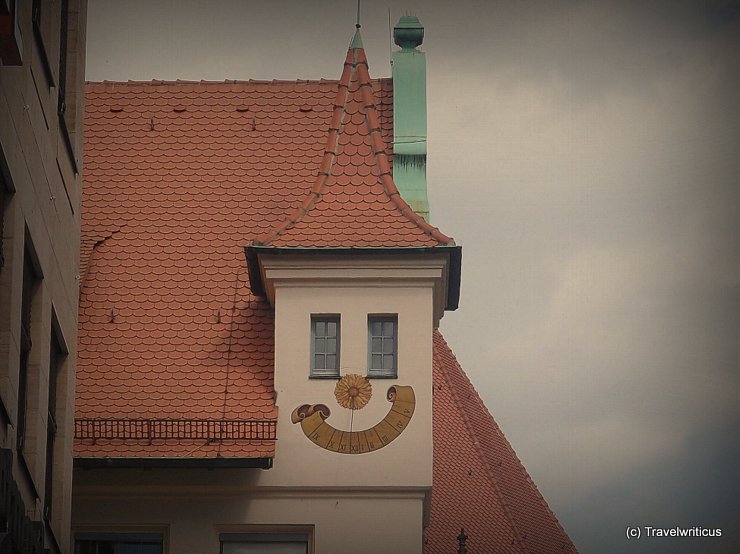
I can’t help myself, but this sundial made me smile! 🙂 I came across this piece while walking along the Sundial Path of Nuremberg. Besides artsy sundials, I also encountered fascinating medieval buildings and informative museums.
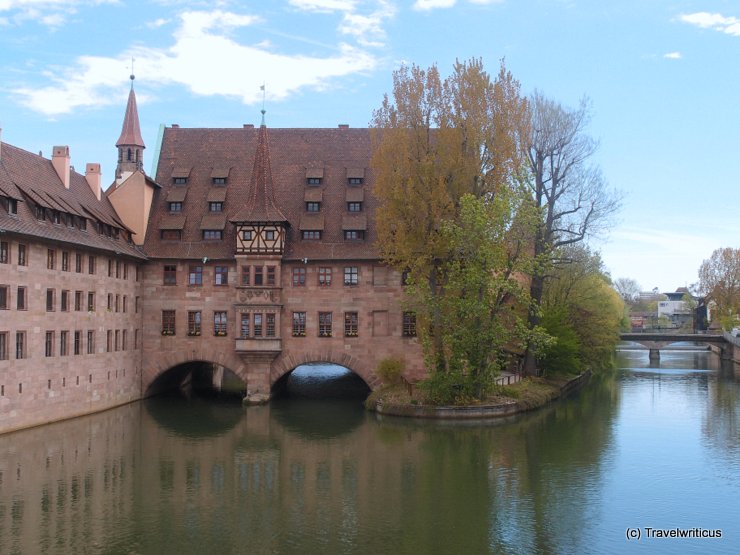
The Heilig-Geist-Spital is one of Nuremberg’s most iconic sights. The associated hospital church housed the Imperial Regalia for several centuries. Today, the depicted part of the spital accommodates a restaurant. [German]
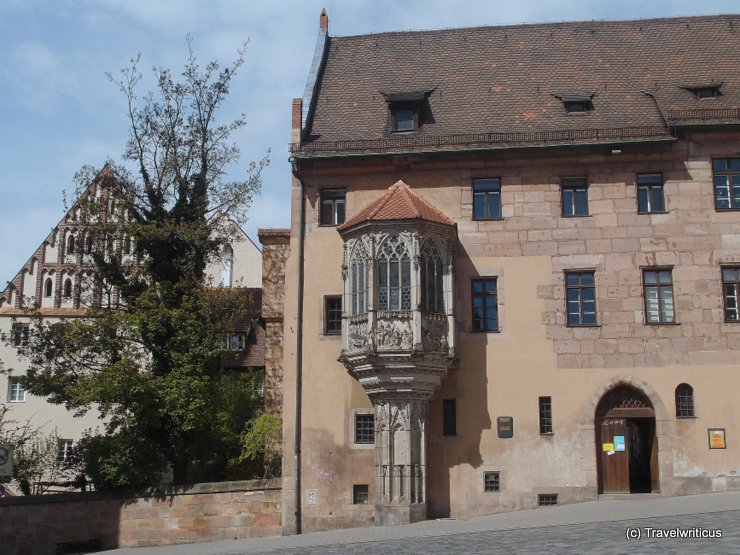
The Nürnberger Chörlein is an architectural peculiarity in the old town of Nuremberg. These oriels artfully protrude from the upper floor of the houses onto the street and look like elite box seats. [German]
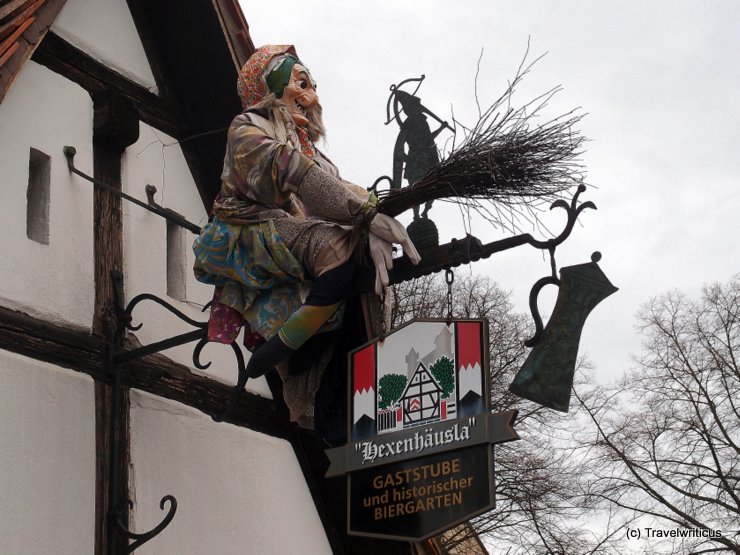
At first glance, this inn sign in Nuremberg didn’t seem special. But then I discovered the silhouette of a man wearing a crossbow right behind the dull-looking puppet of a witch. Locals told me this symbolizes a honey hunter.
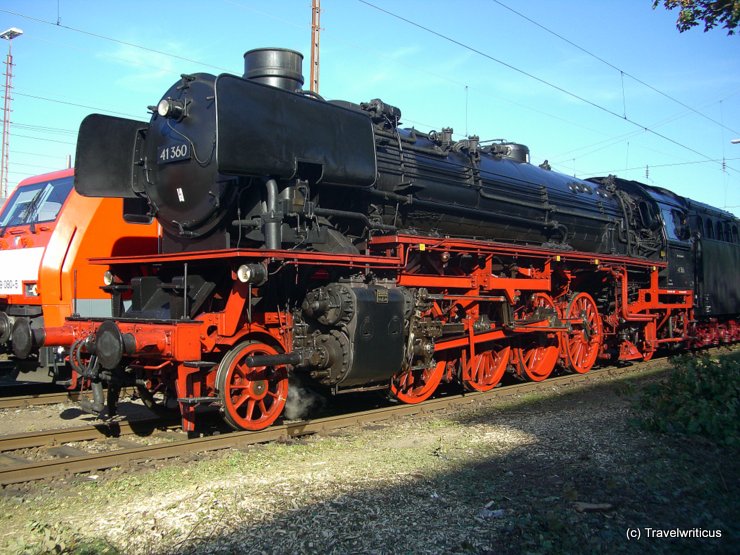
During a parade of historic locomotives in Fürth, this engine of the German Class 41 evoked my attention. Despite being built in 1940, the freight locomotive 41 360 seemed particularly juvenile and elegant to me.
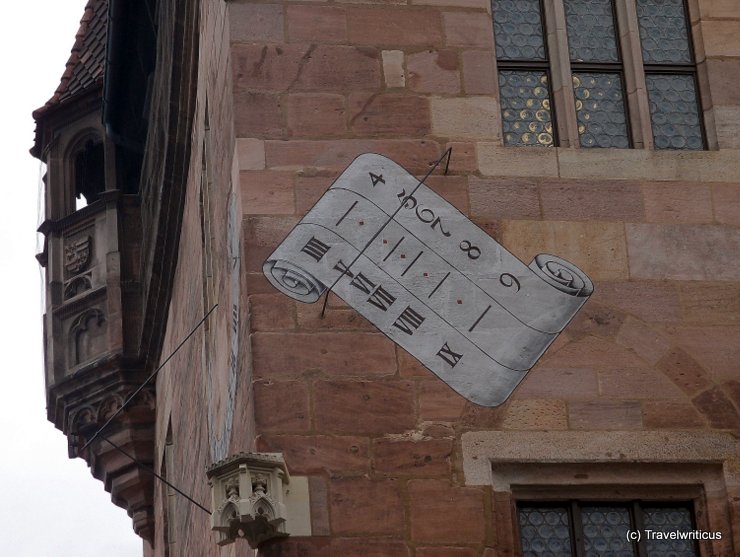
The Nassauer Haus is a medieval residential tower in the centre of Nuremberg. The name is misleading. The tower has nothing to do with the aristocratic dynasty House of Nassau. After a previous owner, the building is also known as Schlüsselfeldersches Stiftungshaus. [German]
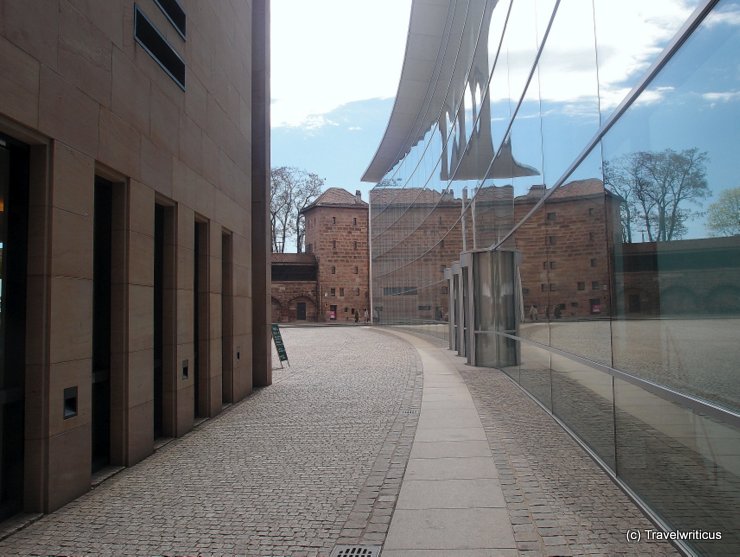
In Nuremberg, there is some modern architecture inside the medieval town walls. As a result, the glass façade of the Neues Museum reflects the city wall like a mirror. By the way, the museum shows pieces of contemporary art and design.
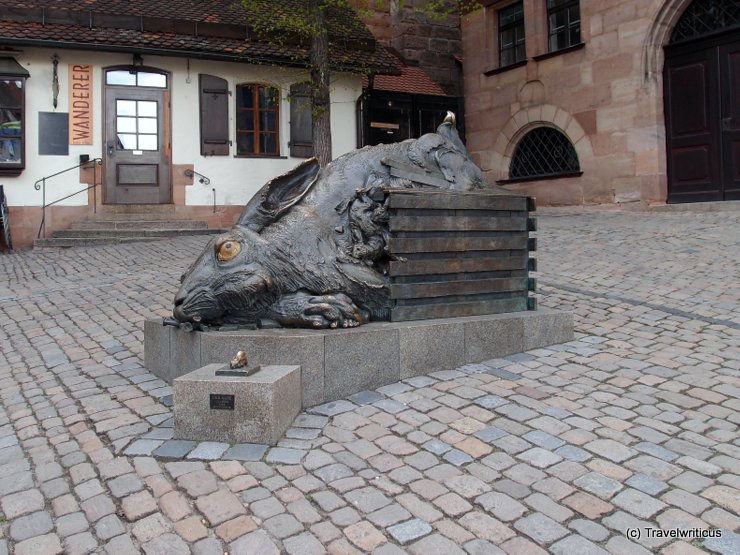
This sculpture represents a female hare. It stands on Tiergärtnertorplatz within sight of the Albrecht Dürer House. The artwork was created in 1984 by Jürgen Goertz. In this work, the artist alludes to the painting of the Young Hare by Albrecht Dürer. [German]
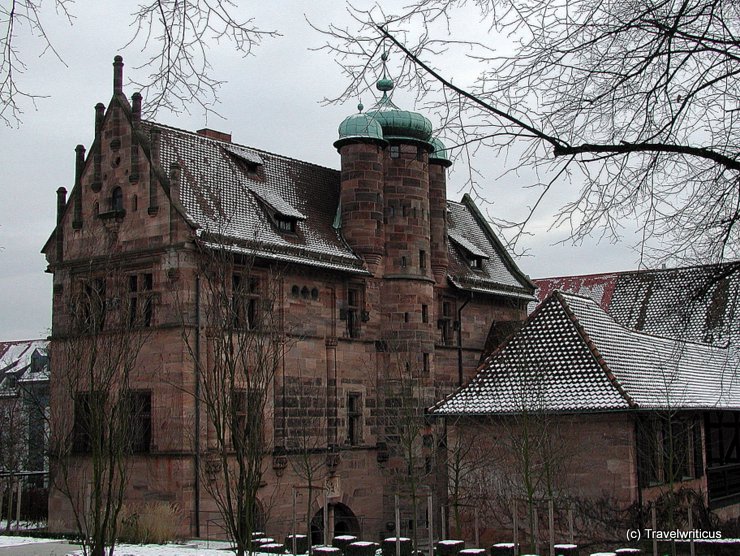
The Tucher Mansion (Tucherschloss) dates back to 1544. It served as a summer residence for the Tucher, a patrician family in Nuremberg. The museum inside shows how such a family lived in those times.
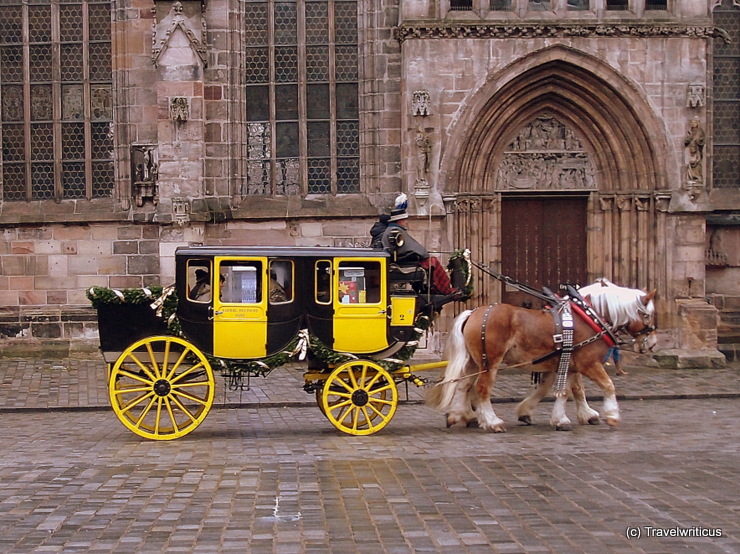
During the Christkindlesmarkt, the traditional Christmas market of Nuremberg, guests may ride on a 1939 reproduction of a nine-seater Berlin with two coupés from 1874. The stagecoach is supplied by the Museum for Communication, which is also worth a visit.
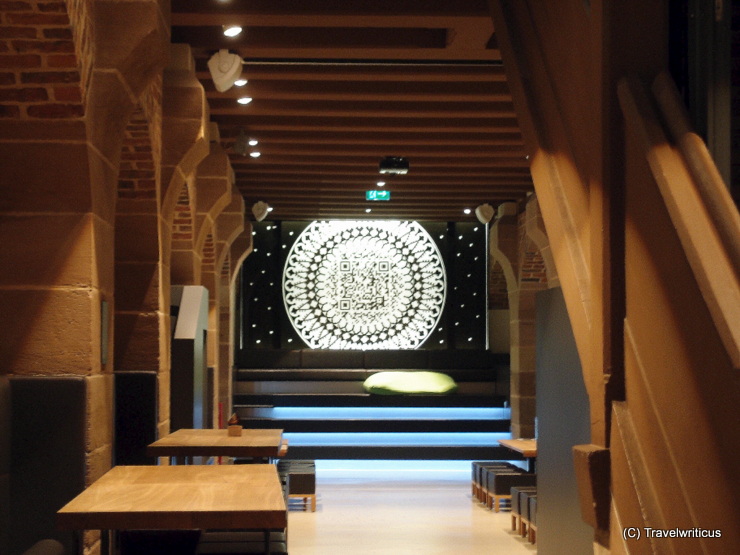
The youth hostel in Nuremberg (Nürnberg) is located in a part of the Imperial Castle complex high over the city. Though the rooms are pretty modern, there are also several atmospheric parts. Interesting detail: You can find huge QR codes all over the hostel telling you interesting details about the city of Nuremberg.